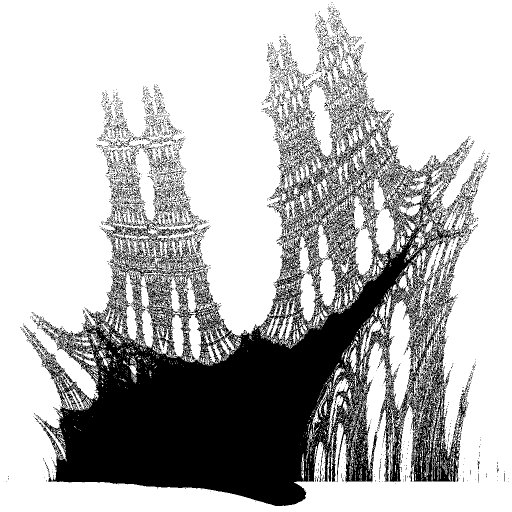結果
| 問題 | No.1301 Strange Graph Shortest Path |
| コンテスト | |
| ユーザー |
 trineutron trineutron
|
| 提出日時 | 2020-11-28 19:28:11 |
| 言語 | C++17 (gcc 15.2.0 + boost 1.89.0) |
| 結果 |
AC
|
| 実行時間 | 491 ms / 3,000 ms |
| コード長 | 5,651 bytes |
| 記録 | |
| コンパイル時間 | 2,441 ms |
| コンパイル使用メモリ | 213,160 KB |
| 最終ジャッジ日時 | 2025-01-16 09:39:58 |
|
ジャッジサーバーID (参考情報) |
judge3 / judge3 |
(要ログイン)
| ファイルパターン | 結果 |
|---|---|
| sample | AC * 2 |
| other | AC * 33 |
ソースコード
#include <bits/stdc++.h>
#include <algorithm>
#include <cassert>
#include <limits>
#include <queue>
#include <vector>
namespace atcoder {
template <class Cap, class Cost> struct mcf_graph {
public:
mcf_graph() {}
mcf_graph(int n) : _n(n), g(n) {}
int add_edge(int from, int to, Cap cap, Cost cost) {
assert(0 <= from && from < _n);
assert(0 <= to && to < _n);
int m = int(pos.size());
pos.push_back({from, int(g[from].size())});
g[from].push_back(_edge{to, int(g[to].size()), cap, cost});
g[to].push_back(_edge{from, int(g[from].size()) - 1, 0, -cost});
return m;
}
struct edge {
int from, to;
Cap cap, flow;
Cost cost;
};
edge get_edge(int i) {
int m = int(pos.size());
assert(0 <= i && i < m);
auto _e = g[pos[i].first][pos[i].second];
auto _re = g[_e.to][_e.rev];
return edge{
pos[i].first, _e.to, _e.cap + _re.cap, _re.cap, _e.cost,
};
}
std::vector<edge> edges() {
int m = int(pos.size());
std::vector<edge> result(m);
for (int i = 0; i < m; i++) {
result[i] = get_edge(i);
}
return result;
}
std::pair<Cap, Cost> flow(int s, int t) {
return flow(s, t, std::numeric_limits<Cap>::max());
}
std::pair<Cap, Cost> flow(int s, int t, Cap flow_limit) {
return slope(s, t, flow_limit).back();
}
std::vector<std::pair<Cap, Cost>> slope(int s, int t) {
return slope(s, t, std::numeric_limits<Cap>::max());
}
std::vector<std::pair<Cap, Cost>> slope(int s, int t, Cap flow_limit) {
assert(0 <= s && s < _n);
assert(0 <= t && t < _n);
assert(s != t);
// variants (C = maxcost):
// -(n-1)C <= dual[s] <= dual[i] <= dual[t] = 0
// reduced cost (= e.cost + dual[e.from] - dual[e.to]) >= 0 for all edge
std::vector<Cost> dual(_n, 0), dist(_n);
std::vector<int> pv(_n), pe(_n);
std::vector<bool> vis(_n);
auto dual_ref = [&]() {
std::fill(dist.begin(), dist.end(),
std::numeric_limits<Cost>::max());
std::fill(pv.begin(), pv.end(), -1);
std::fill(pe.begin(), pe.end(), -1);
std::fill(vis.begin(), vis.end(), false);
struct Q {
Cost key;
int to;
bool operator<(Q r) const { return key > r.key; }
};
std::priority_queue<Q> que;
dist[s] = 0;
que.push(Q{0, s});
while (!que.empty()) {
int v = que.top().to;
que.pop();
if (vis[v]) continue;
vis[v] = true;
if (v == t) break;
// dist[v] = shortest(s, v) + dual[s] - dual[v]
// dist[v] >= 0 (all reduced cost are positive)
// dist[v] <= (n-1)C
for (int i = 0; i < int(g[v].size()); i++) {
auto e = g[v][i];
if (vis[e.to] || !e.cap) continue;
// |-dual[e.to] + dual[v]| <= (n-1)C
// cost <= C - -(n-1)C + 0 = nC
Cost cost = e.cost - dual[e.to] + dual[v];
if (dist[e.to] - dist[v] > cost) {
dist[e.to] = dist[v] + cost;
pv[e.to] = v;
pe[e.to] = i;
que.push(Q{dist[e.to], e.to});
}
}
}
if (!vis[t]) {
return false;
}
for (int v = 0; v < _n; v++) {
if (!vis[v]) continue;
// dual[v] = dual[v] - dist[t] + dist[v]
// = dual[v] - (shortest(s, t) + dual[s] - dual[t]) + (shortest(s, v) + dual[s] - dual[v])
// = - shortest(s, t) + dual[t] + shortest(s, v)
// = shortest(s, v) - shortest(s, t) >= 0 - (n-1)C
dual[v] -= dist[t] - dist[v];
}
return true;
};
Cap flow = 0;
Cost cost = 0, prev_cost = -1;
std::vector<std::pair<Cap, Cost>> result;
result.push_back({flow, cost});
while (flow < flow_limit) {
if (!dual_ref()) break;
Cap c = flow_limit - flow;
for (int v = t; v != s; v = pv[v]) {
c = std::min(c, g[pv[v]][pe[v]].cap);
}
for (int v = t; v != s; v = pv[v]) {
auto& e = g[pv[v]][pe[v]];
e.cap -= c;
g[v][e.rev].cap += c;
}
Cost d = -dual[s];
flow += c;
cost += c * d;
if (prev_cost == d) {
result.pop_back();
}
result.push_back({flow, cost});
prev_cost = cost;
}
return result;
}
private:
int _n;
struct _edge {
int to, rev;
Cap cap;
Cost cost;
};
std::vector<std::pair<int, int>> pos;
std::vector<std::vector<_edge>> g;
};
} // namespace atcoder
using namespace std;
using namespace atcoder;
int main() {
int n, m;
cin >> n >> m;
mcf_graph<int64_t, int64_t> graph(n);
for (int i = 0; i < m; i++) {
int u, v, c, d;
cin >> u >> v >> c >> d;
u--; v--;
graph.add_edge(u, v, 1, c);
graph.add_edge(u, v, 1, d);
graph.add_edge(v, u, 1, c);
graph.add_edge(v, u, 1, d);
}
cout << graph.flow(0, n - 1, 2).second << endl;
}
